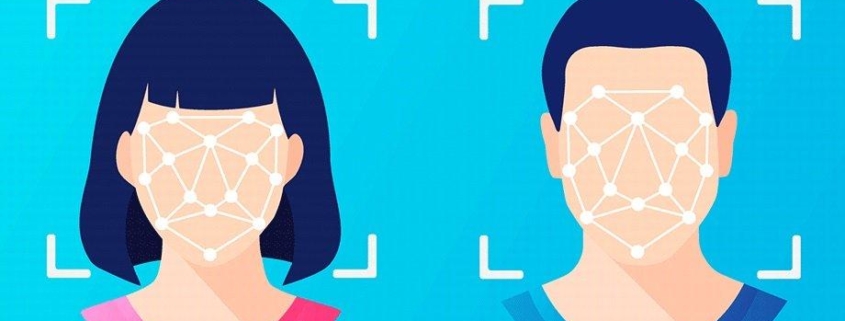Tag Archive for: Articles
Top 10 insight articles in 2021
/in Internet Security
Our most popular articles in 2021 provide a good reflection of the state of the industry. Taken together, the Top 10 Articles of 2021, as measured by reader clicks, cover big subjects such as smart cities and cybersecurity. They address new innovations in video surveillance, including systems that are smarter and more connected, and a new generation of computer chips that improve capabilities at the edge.
A recurring theme in 2021 is cybersecurity’s impact on physical security, embodied by a high-profile hack of 150,000 cameras and an incident at a Florida water plant. There is also an ongoing backlash against facial recognition technology, despite promising technology trends.
Cross-agency collaboration
Our top articles also touch on subjects that have received less exposure, including use of artificial intelligence (AI) for fraud detection, and the problem of cable theft in South Africa. Here is a review of the Top 10 Articles of 2021, based on reader clicks, including links to the original content:
Smart cities have come a long way in the last few decades, but to truly make a smart city safe
Safety in Smart Cities: How Video Surveillance Keeps Security Front and Center
The main foundations that underpin smart cities are 5G, Artificial Intelligence (AI), and the Internet of Things (IoT) and the Cloud. Each is equally important, and together, these technologies enable city officials to gather and analyse more detailed insights than ever before. For public safety in particular, having IoT and cloud systems in place will be one of the biggest factors to improving the quality of life for citizens. Smart cities have come a long way in the last few decades, but to truly make a smart city safe, real-time situational awareness and cross-agency collaboration are key areas that must be developed as a priority.
Fraud detection technology
How AI is Revolutionising Fraud Detection
Fraud detection technology has advanced rapidly over the years and made it easier for security professionals to detect and prevent fraud. Artificial Intelligence (AI) is revolutionising fraud detection. Banks can use AI software to gain an overview of a…
Ethics of Cyber Warfare against Nation States | Articles
/in Internet Security
Dear Editor,
Ethics starts with determining the laws of war and trying to regulate what is considered legal in the eyes of international law. The additional protocols of the Geneva Convention in 1977 mentions the prevention of “an attack which may be expected to cause incidental loss of civilian life, injury to civilians, damage to civilian objects, or a combination of thereof, which would be excessive in relation to the concrete and direct military advantage anticipated” (ICRC, 1977).
As a nation state, national security is one of the most important duties that involve protecting the government and its people. In the beginning, national security pertained to various types of military threats, while cyber security became a late addition to ongoing threats that no longer requires a declaration before taking action. Regardless of time and location, attacks can be conducted at any moment as long as there is access to the cyber world.
Conducting an offensive cyber warfare on a nation state can raise severe ethical issues for the public. Being completely different from any type of conventional weapon, the general population is at the greatest risk of being exposed to the destruction of its economy, energy, food, and critical infrastructure. A state’s critical infrastructure is composed of physical, non-physical, and cyber resources or support services that are necessary for society and its economy to function at its minimum standard.
Stuxnet is one of the earliest forms of cyber warfare where it achieved its goal of hindering Iran’s nuclear program for roughly a year. It was able to “launch an offensive on four companies” (Zetter, 2017) that had connections with the nuclear program. Delaying the progress of a nation state’s weapon capabilities might be one of the very few ethical attacks. Meanwhile, near-peer adversaries such as Russia has shown capabilities to interfere with elections and government affairs throughout the world and reap the benefits of chaos and instability.
In a way, cyber warfare against nation states have been long underway due to being a subject of uncertainty and the lack of enforcement by any…
Millions of smart devices are vulnerable to hacking, experts warn | Articles
/in Computer Security
The discovery highlights the dangers that cybersecurity experts often find in internet-linked appliances designed without much attention to security. Sloppy programming by developers is the main issue in this case, Rashid said.
Addressing the problems, estimated to afflict millions of devices, is particularly complicated because they reside in so-called open source software, code freely distributed for use and further modification. In this case, the issue involves fundamental internet software that manages communications via a technology called TCP/IP.
Fixing the vulnerabilities in impacted devices is particularly complicated because open-source software isn’t owned by anyone, said Elisa Costante, Forescout’s vice president of research. Such code is often maintained by volunteers. Some of the vulnerable TCP/IP code is two decade sold; some of it is no longer supported, Costante added.
It is up to the device manufacturers themselves to patch the flaws and some may not bother given the time and expense required, she said. Some of the compromised code is embedded in a component from a supplier — and if no one documented that, no one may even know it’s there.
“The biggest challenge comes in finding out what you’ve got,” Rashid said.
If unfixed, the vulnerabilities could leave corporate networks open to crippling denial-of-service attacks, ransomware delivery or malware that hijacks devices and enlists them in zombie bot nets, the researchers said. With so many people working from home during the pandemic, home networks could be compromised and used as channels into corporate networks through remote-access connections.



